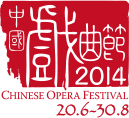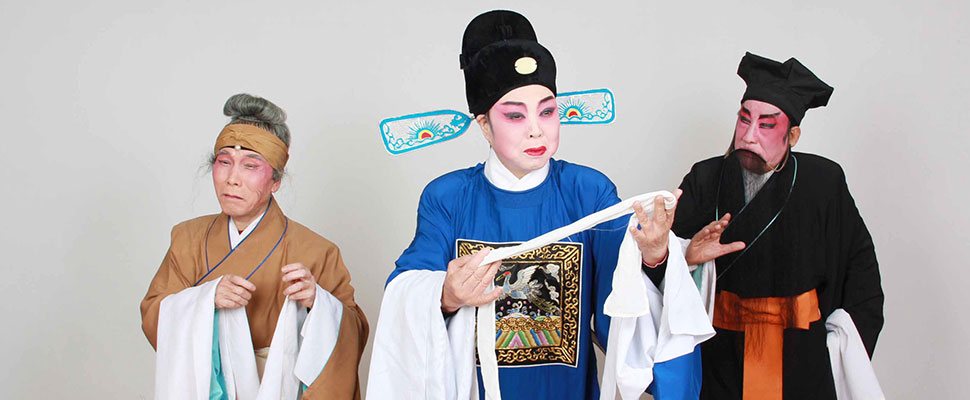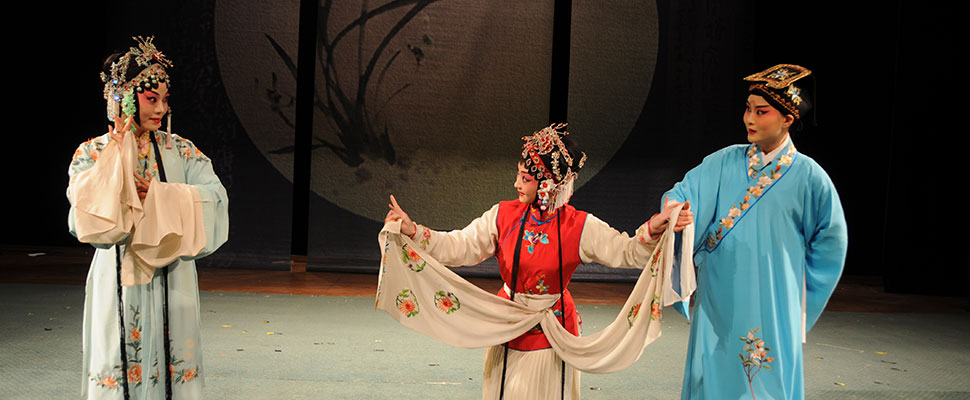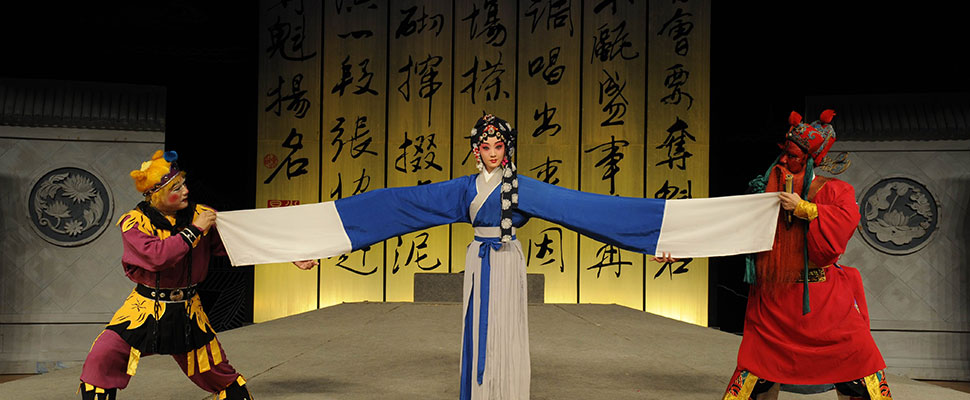Young scholar Zhang Xie was robbed on his way to attend the imperial examination. Without food and lodging, he was helped by a poor young girl who was taking shelter in an old temple. With her fellow townsman Elderly Li acting as the matchmaker, the young girl was married to Zhang. She later heard that Zhang became the number one scholar in the imperial examination and went to the capital city to find him. To her disappointment, she was rejected by Zhang. Distressed, she returned to the old temple. Zhang rushed to the temple to kill her. Wounded and in despair, she was rescued by the minister of the military, Wang Deyong, who adopted her as his daughter. Prior to this, Wang had tried to marry his own daughter Shenghua to Zhang but was refused by him. Since his daughter died from illness, Wang betrothed his newly adopted daughter to Zhang, who gladly accepted. At the wedding night, the young girl rebuked Zhang for his misdeeds. Pacified by Elderly Li and the others, the young girl finally forgave Zhang.

- Peking Opera Research Centre of Hebei
- Four Stylistic Schools of Xiaosheng Roles in Yue Opera
- A New Cantonese Opera Investigation to Redress a Wrong
- Reverberating Notes from South China Highlights of the Eight Classic Pieces
- Zhejiang Yongjia Kunqu Opera Troupe
- Yunnan Dian Opera Theatre
- Experimental Theatre of Liyuan Opera of Fujian
- Haifeng Baizi Opera Troupe of Guangdong
- No.2 Troupe of Yu Opera Theatre of Henan
- Jingkun Theatre
Zhejiang Yongjia Kunqu Opera Troupe
18 July 2014 Programme Change
Due to health problem, Ms. Jin Hailei will not be able to join the performance. Excerpt Setting a Date to Meet and Asking for the Hairpin from The Hairpin is thus changed to Yearning for the Secular World from A Sea of Sins to be performed by You Tengteng. Thank you for your attention.
Yongjia Kunqu is also known as ‘Wenzhou Kunqu’ as the latter is the source of this sub-genre. It is popularly found in the southeast coast of Zhejiang Province, where the vocal style of Haiyangqiang coexists. The reciprocal influence therefore lends Yongjia Kunqu its quaint form of the ancient Southern Opera, with similarities shared with the Haiyangqiang such as use of medleys in plays, tempi etc.. The vernacular roots of this subgenre can be seen in its delivery of lines as well as in its music, so it is closer to the common folks than the elegant, literati-favoured Shuimoqiang and orthodox Kunqu. The Yongjia subgenre had seen its heyday before it fell into near oblivion in the 20th century. The Zhejiang Yongjia Kunqu Opera Troupe is the only professional group of the genre today. The Number One Scholar Zhang Xie is from the repertory of Southern Opera of the Song and Yuan period (10th to 14th centuries). The troupe gave a new adaptation of this Southern Opera but retained the format of having one actor playing more than one character in the play. So, in the story, the Judge of Hell is at the same time a demon of much lesser status, a bystander and a commentator, sometimes even a prop such as a door or a chair, and at other times a spirit who ‘sucks up’ the altar offerings. Most important of all, there is the symbolic representation of the dilemma in Zhang the protagonist’s heart. The so-called ‘happy ending’ is a parody of the actual tragedy of women of ancient times, when their wills and wishes are often at odds with their fate. The veterans on the cast of the troupe – Lin Meimei, Huang Zongsheng and Lu Deming – and other outstanding actors will perform excerpts. It will be a showcase of the naturalistic charm of Yongjia Kunqu.
The Number One Scholar Zhang Xie
| cast | Lin Meimei, You Tengteng, Wang Chenghu, Lu Deming, Zhang Shengjian, Liu Hanguang |
Eating Rice and Eating Chaff from The Story of the Lute
Performances of this play has not ceased since the Qing Dynasty. After having given the only remaining two bowls of rice to her in-laws, Zhao Wuniang ate chaff in the kitchen. Suddenly, she felt a lump in her throat and choked. To ease herself, she put the bowl on top of her head and banged the centre of the bowl with a pair of chopsticks while the gong accompanies her gestures in a cold and sorrowful tune. With tears running down from her eyes, Zhao Wuniang stretched out her neck and kept swallowing. The actress’s vivid portrayal touches the hearts of the audience deeply.
Cai Bojie left home to attend the imperial examination in the capital city. After he left, his family heard no more from him. Famine broke out in Cai’s hometown and lasted for years. In order to buy rice for Cai’s parents, his wife Zhao Wuniang sold all her belongings. She gave all the rice to her in-laws and ate chaff herself. But her mother-in-law suspected that Zhao kept all the good food to herself. When the mother-in-law found out the truth, she was full of regret.
| cast | Liu Wenhua, Zhang Shengjian, Feng Chengyan, Zhang Lingdi |
The Day of the Wedding from The Story of the West Chamber
This play fully displays the characteristic features of Kunqu songs and dance. Hongniang sways her waist and walks in twisted steps to display her playful and lovely character even when she is upset. When she sings the set tune of Shi Er Hong, her postures and dance movements are stylish and varied.
Young scholar Zhang Gong became lovesick after seeing the beautiful Cui Yingying. Cui’s maid, Hongniang acted as their go-between to help them realize their wishes.
| cast | You Tengteng, Nan Xianjuan, Du Xiaowei |
Painting the Portrait and Taking Leave at Her In-laws’ Grave from The Story of the Lute
Zhao Wuniang is a typical zhengdan (leading female) role. The actress who plays this role must convey the intense sadness and desolation of the character. She must also possess unique singing and acting style. Painting the Portrait, Lamenting over the Portrait, Taking Leave at Her In-laws’ Grave and Entrusting the Grave to Elderly Zhang fully express the sorrow of Zhao Wuniang and Elderly Zhang.
After the death of her in-laws, Zhao Wuniang went to find her husband in the capital city. Before she left, she painted a sad portrait of her deceased in-laws. When Elderly Zhang heard that Zhao was leaving, he gave her food and money and saw her off at her in-laws’ grave.
| cast | Liu Wenhua, Zhang Lingdi |
Yearning for the Secular World from A Sea of Sins
Melodic and smooth flowing, this solo performance by a dan (female role) is highly demanding on the aesthetic appeal, posture complexity and movement variation of its performer. A popular Kunqu work, this excerpt is frequently performed on stage.
A young woman surnamed Zhao joined the Xiantao Nunnery as a nun since she was a child. Her Buddhist name was Sekong. She found the solitude and loneliness of being a nun unbearable. Determined to seek happiness in the secular world, she ran away from the nunnery in the mountains to find a new life.
| cast | You Tengteng |
Autumn River from The Story of the Jade Hairpin
In other genres of Chinese opera, this excerpt features Pan Bizheng and Chen Miaochang as the leading characters. But this one performed by Yongkun is different: the old and young boatmen take centre stage instead. Another breakthrough is that it brings to the stage the rolling movements employed by Yongjia's local boatmen. This excerpt is particularly popular among village audience and is one of the classic repertoires of Yongkun.
During a war, Chen Miaochang sought refuge in the Nuzhen nunnery and became a nun. Scholar Pan Bizheng failed his imperial examination and was too ashamed to return home. He went to stay with his aunt who happened to be the nun in charge of the Nuzhen nunnery. Pan and Chen fell in love with each other when they met. This was found out by Pan’s aunt who then forced Pan to attend the imperial examination again. When Chen heard of Pan's departure, she hired a boat to chase him. When they met, Chen reassured Pan of her unfailing love for him.
| cast | Huang Miaomiao, Du Xiaowei, Liu Hanguang, Lu Deming, Li Wenyi |
Interrogating the Maid from The Story of the Wooden Hairpin
This is an excerpt from The Story of the Wooden Hairpin written by Ke Danqiu in the Yuan Dynasty. Although other theatre troupes seldom perform this piece, Yongkun insists on preserving it and staging it from time to time. Its storyline is simple but it conveys clearly the meaning of a common and easy to understand literary quotation: ‘Beating the maid, reflecting on her mistress’.
Impressed by Wang Shipeng’s cleverness and eagerness to learn, tribute scholar Qian Liuxing betrothed his daughter Yulian to Wang. Wang and his mother lived in poverty, so she could only give Qian a wooden hairpin as the wedding gift. Later, Wang became the number one scholar in the imperial examination. The prime minister wanted to marry his daughter to him, but Wang refused. Wang wrote a letter to Yulian, but he did not know that the letter had been maliciously changed. After reading the fake letter, Yulian was heartbroken and jumped herself into a river. She was rescued by Qian Zaihe who adopted her as his daughter. In Interrogating the Maid, Qian Zaihe suspected Yulian and her maid Meixiang were hiding something important from him, so he interrogated Meixiang to find out the truth.
| cast | Nan Xianjuan, You Tengteng, Feng Chengyan |
On Seeing His Mother But Without His Wife from The Story of the Wooden Hairpin
This is one of the signature works of Yongjia Kunqu. The actor who plays the xiaosheng (young male) role in this excerpt walks in ‘sparrow steps’ and shakes the wing-like attachments to his hat to show his bold and unrestrained character and his up-surging emotion. This performance is special for bringing three senior artists of Yongkun back on the stage together.
Wang Shipeng's letter to his family was changed. After reading the letter, his wife thought that Wang had married the prime minister’s daughter, so she jumped into the river to kill herself. Firmly believing in his son’s filial obedience, Wang’s mother went to the capital city to find him. Wang was overjoyed to see his mother but was surprised that his wife was not with her. When his mother answered his questions evasively, Wang became suspicious. In the end, a piece of mourning string fell down from his mother’s sleeve. Wang then found out about his wife’s death, and was heartbroken.
| cast | Lin Meimei, Huang Zongsheng, Lu Deming |
The Animal Sacrifice from Plucking the Laurel
This is a special repertoire of Yongjia Kunqu. Completely different from the style of traditional Kunqu, this piece is straight forward and uninhibited, simple and unadorned, and plain and unassuming. Its grass-root character earns it great popularity among the village audience.
Eighteen years ago, after being raped by her master, young maid Peizhi gave birth to a son. Her hard-hearted mistress took away her son and made her work in the kitchen. Eighteen years later, Peizhi’s son became the number one scholar in the imperial examination. Overjoyed, Peizhi thought that her son would not look down on her and would reunite with her. Unfortunately, even greater misfortune and misery awaited her.
| cast | Liu Wenhua, Huang Miaomiao, You Tengteng, Zhang Shengjian, Li Wenyi |
To the Banquet Armed
This excerpt from Romance of the Three Kingdoms depicts vividly the brave, resourceful and daring character of Guan Yu. Through its unique style of singing and the stunning northern school martial arts, this performance by Yongkun projects the heroic image of Guan Yu to its fullest extent.
Having borrowed Jingzhou from Sun Quan to station his troops, Liu Bei failed to return it. Sun’s chief military strategist Lu Su invited Liu Bei’s general and sworn brother Guan Yu to a feast. Armed with only one knife, Guan Yu went with his attendant Zhou Cang. Before the feast began, Lu Su demanded the return of Jingzhou. Guan Yu seized Lu Su and rebuked Lu for laying an ambush against him. Seeing that he is in Guan Yu’s hands, Lu Su was forced to give up. Guan Yu then set sail and returned to his camp.
| cast | Zhang Lingdi, Liu Hanguang, Feng Chengyan |
Liu Wenhua
Specializing in dan (female) roles, Liu had received tutelage from senior Yongjia Kunqu artists Zhou Yunjuan, Chen Fangkui, Zhang Renjie and Li Bing, inheriting from them the unique artistic techniques and styles of Yongjia Kunqu. She also received further training from renowned Kunqu artists Hua Wenyi and Zhou Zhigang. Liu has won many class one and outstanding performance awards in national, provincial and city-wide Kunqu festivals and contests. These include an Outstanding Performance Award at the 10th Zhejiang Theatrical Festival and an Outstanding Performance Award at the 4th China Kunqu Opera Festival.
Zhang Lingdi
Specializing in wusheng (military male) roles. Equipped with strong foundation techniques and a rigorous attitude towards his performance, Zhang has played leading or key roles in To the Banquet Armed and The Story of the Lute. He has also directed performances of Fifteen Strings of Copper Coins, The Legend of the White Snake, The Battle at the Little Shang River, Princess Baihua, and The Injustice to Dou E. In 2009, Zhang won the Gold Award at the Zhejiang Kunqu Middle-aged and Young Artists Contest.
Lin Meimei
A renowned Yongjia Kunqu artist and a propagator of the National Intangible Cultural Heritage, Lin specializes in xiaosheng (young male) roles. She was in the first batch of graduates from Wenzhou Prefecture Theatrical Training Class and had studied under Yang Yongtang and Yang Yinyou. She received a Class One Performance Award at the 7th Wenzhou Arts Festival and an Outstanding Award at the 1st Kunqu Opera Festival.
Wang Chenghu
National Class Two Performer. He has received a Class One Performance Award at the Wenzhou Theatrical Joint Performance and the Wenzhou Theatrical Festival, a Class Two Award at the Zhejiang Theatrical Festival and an Outstanding Award at the 1st China Kunqu Opera Festival.
Huang Zongsheng
Born into a family of theatrical artists, Huang specializes in xiaohualian (comic male) roles. He was a student of Zhu Baogui and Wang Chuansong. His representative works include Killing at the Restaurant, Killing the Dog to Admonish Her Husband, The Butterfly Dream and The Number One Scholar Zhang Xie. Huang has received the Wenhua Award for Performance and other performance awards at provincial and city theatrical festivals.
Lu Deming
Specializing in laosheng (elderly male) roles, Lu Deming is a propagator of Provincial Intangible Cultural Heritage. He was a student of senior artists Zhang Jinfu and Yang Yongtang. His works include The Story of the Wooden Hairpin, The Story of the Lute and Embroidering the Coat. Apart from performing, Lu also teaches students the art of Yongjia Kunqu.
You Tengteng
A graduate of Shandong Arts School, specializing in huadan (young female) and guimendan (unmarried female) roles. She received training from Hu Jinfang, Liu Wenhua and Zhang Lingdi. She was named as one of the Ten Best New Artists at the National Kunqu Outstanding Young Performers Showcase, and won a Class One Performance Award at the 11th Wenzhou Theatrical Festival, the Gold Award at the Wenzhou Young Performers Contest, an Outstanding Performance Award at the 11th and 12th Zhejiang Theatrical Festival, a Class Two Award at the Zhejiang Xinsong Project Young Theatrical Performers Contest and an Outstanding Performance Award at the 5th China Kunqu Opera Festival of China.
Du Xiaowei
Graduated from Zhejiang Arts Vocational School and specializing in xiaosheng (young male) roles. She was a student of Lin Meimei, and received further training at the National Kunqu Xiaosheng Graduate Class. Du has played key roles in The Legend of the White Snake, Fifteen Strings of Copper Coins and The Story of the Golden Seal. She has won a New Performers Award at the Wenzhou Performers Contest.
Zhejiang Yongjia Kunqu Opera Troupe
Originally founded in 1954 under the name of Wenzhou Julun Kunqu Theatre, Zhejiang Yongjia Kunqu Opera Troupe (‘Yongkun’) adopted its present name in 1957. The troupe was established to preserve and carry forward the age-old art of Yongjia Kunqu. It is a theatre group that takes root among the people. As a theatre of the common people, its repertoires include both solemn and humorous pieces, some of which are unique in the country. Its style is straight forward and uninhibited as well as graceful and restrained. The troupe was once dissolved, but under the effort of a group of senior artists, it was revived in 1999, and has since become an institute that focuses on both research and performance of the art. In 2001, Kunqu was proclaimed as one of the first batch of masterpieces of Oral and Intangible Heritage of Humanity by the UNESCO. In 2005, Yongjia Kunqu was designated as one of the first batch of National Intangible Cultural Heritage of China. In the same year, the troupe expanded itself by openly recruiting new artists twice. Since its re-establishment, the troupe has compiled 11 full-length operas and more than 30 excerpts. Its signature works include The Number One Scholar Zhang Xie, The Story of the Lute, The Story of the Wooden Hairpin, Plucking the Laurel and The Story of the Golden Seal. A large number of its classic excerpts have been made into videos which are now kept in the Kunqu Opera Museum. The troupe has also published books related to Kunqu, such as Yongjia Kunqu Opera, Reviews of The Number One Scholar Zhang Xie, Zhejiang Intangible Heritage Series – Yongjia Kunqu Opera and Ten Years of Yongjia Kunqu Opera. The troupe has performed in the China Kunqu Opera Festival for five years. Its performances have won numerous prizes and popular acclaim.
STAGE

Ticket Price
![]() $280
$280
![]() $200
$200
![]() $120
$120
- With Chinese and English surtitles
- Please refer to the ‘Extension Activities’ page for details of extension activities
- Each performance lasts approx. 2 hours and 15 minutes with a 15-minute intermission
| Programme Enquiries | 2268 7325 |
| Ticketing Enquiries | 3761 6661 |
| Telephone Credit Card Booking | 2111 5999 |
| Internet Booking | www.urbtix.hk |
Please click here for discount scheme details.


















This is the oldest play of Southern Chinese theatre recorded in the Yongle Encyclopedia. The version adapted by Yongkun presents a number of southern theatre elements, such as one actor playing several roles, using actors as props, changing costumes and playing musical instruments on stage. It gives the audience a glimpse of the style and features of Southern Chinese theatre.